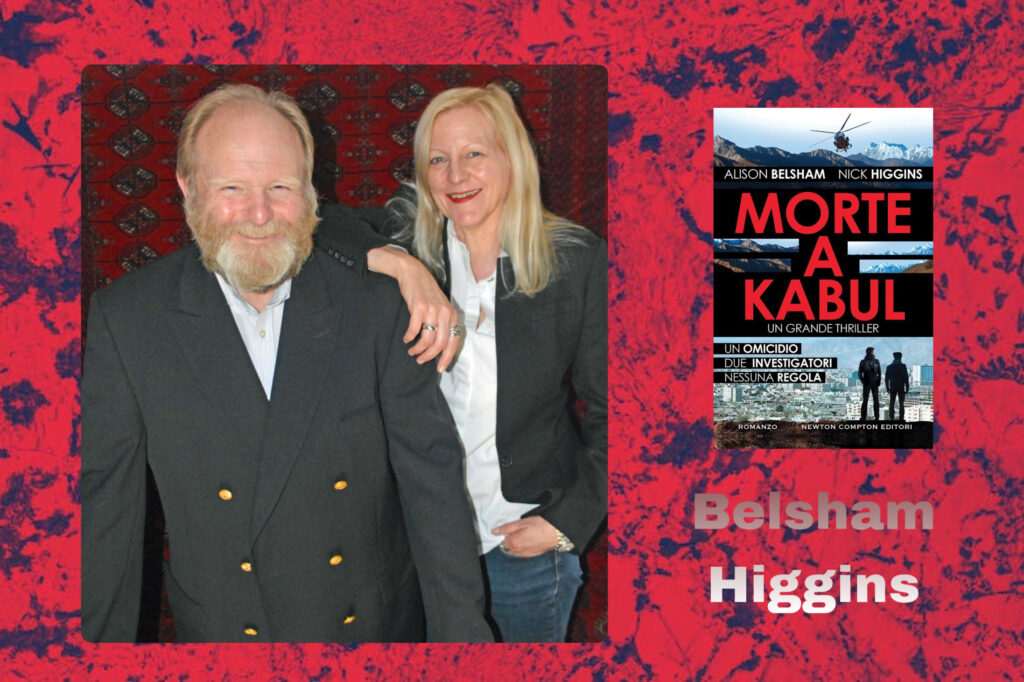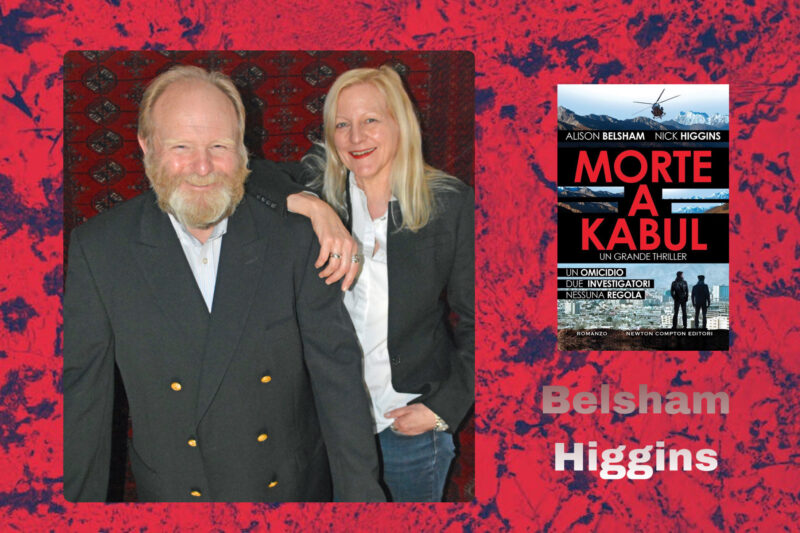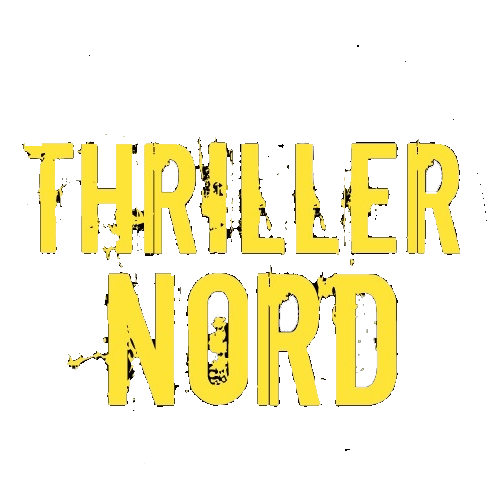A tu per tu con l’autore
When I was offered the opportunity to read Death in Kabul, I immediately accepted. I have been reading widely about Afghanistan, and I could not but appreciate the details of everyday life in Kabul that you introduced in the book. I know Mr. Higgins was there for many years, but how hard was it to merge real life experience that only one of you actually had with the requirements of the art of storytelling?
Quando mi è stata offerta l’opportunità di leggere Morte a Kabul, ho accettato immediatamente. Ho letto parecchio sull’Afghanistan, e non ho potuto che apprezzare i dettagli della vita quotidiana a Kabul che avete introdotto nel romanzo. So che Mr. Higgins è stato lì per diversi anni, ma quanto è stato difficile integrare l’esperienza di vita reale che solo uno di voi due aveva con i requisiti dell’arte dello storytelling?
Nick:
I think it turned out to be easier than both of us expected. I could suggest a place that I knew of – say the Tank Graveyard, and send photos of it to Alison and describe the place a bit. She would also do her own research online. Then she’d write a bit and ask me questions and then let me see the finished section. I’d then suggest changes if they were needed to make it more realistic and we’d refine it till we both were in agreement that a particular section/chapter was done.
Penso che sia risultato più facile di quanto entrambi ci aspettassimo. Io suggerivo un posto di cui sapevo – per esempio il cimitero dei carri armati – e mandavo delle foto ad Alison e descrivevo un po’ il posto. Lei proseguiva con le sue ricerche online. Poi lei scriveva un po’, mi faceva delle domande e poi mi mostrava la parte conclusa. Io quindi suggerivo dei cambiamenti se servivano per rendere il tutto più realistico e lo rifinivamo finché entrambi non eravamo convinti che una certa sezione/capitolo fosse compiuto.
Alison:
For me it was a process of listening to Nick’s experiences and then using pictures, video footage, maps and articles to re-imagine all of this information through the eyes of the characters I was writing. When we started, I didn’t know very much about Afghanistan, apart from what is reported on the news, so it was an extraordinary way to learn all about this wonderful, though tragic, country.
Per me è stato un processo che ha coinvolto l’ascolto delle esperienze di Nick e l’utilizzo di immagini, video, mappe e articoli per reimmaginare tutte queste informazioni attraverso gli occhi dei personaggi che stavo scrivendo. Quando abbiamo iniziato, non sapevo molto dell’Afghanistan, a parte quello che veniva riportato dai telegiornali, quindi è stato un modo straordinario per imparare qualcosa di questo meraviglioso, benché tragico, paese.

Mrs. Belsham, you state in the afterword that you did not have any argument with your brother while you were writing the book. So can you tell us what your secret is? How did you work, did one of you write Baz and the other MacKenzie?
Mrs. Belsham, lei dichiara nella postfazione che non ha avuto nessun litigio con suo fratello mentre scriveva il libro. Dunque può dirci qual è il vostro segreto? Come avete lavorato, uno di voi scriveva il personaggio di Baz e l’altro MacKenzie?
Alison:
I think one of the reasons that we didn’t argue when we were writing the book is that our roles were very well defined. Nick is the subject expert on Afghanistan and all of the tactical details, like what sort vehicles, weapons and equipment the characters would have. I’m the writer, so I would take this information and create the prose. Because we both respected the other’s area of expertise, we didn’t end up having arguing over things.
Credo che una delle ragioni per cui non abbiamo litigato quando stavamo scrivendo il libro è che i nostri ruoli erano molto ben definiti. Nick è l’esperto di Afghanistan e tutti i dettagli tattici, per esempio che genere di veicoli, armi ed equipaggiamento potevano avere i personaggi. Io sono la scrittrice, quindi prendevo queste informazioni e buttavo giù la prosa. Siccome entrambi rispettavamo l’area di competenza dell’altro, non siamo finiti a litigare su nulla.
In your novel you talk about the smuggling of stolen artworks and archaeological treasures, which is a sadly true reality of war areas like Afghanistan. How did you research the topic? I was curious if the artworks you refer to in the book are real pieces that have been actually stolen and/or recently been found.
Nel vostro romanzo parlate del contrabbando di manufatti rubati e tesori archeologici, che è una triste realtà delle zone di guerra come l’Afghanistan. Come vi siete documentati sull’argomento? Ero curiosa di sapere se i manufatti a cui fate riferimento nel romanzo siano pezzi reali che sono davvero stati rubati e/o che sono stati ritrovati di recente.
Nick:
I was quite aware of the theft of antiquities and works of art from my time in Afghanistan. I saw the illegal digs when I visited Minaret Jam in 2004, so we were able to build on that through research. While most of the pieces mentioned in the book are genuine, I’m not aware that any of those particular pieces had been stolen in real life.
Ero abbastanza informato sul furto di antichità e opere d’arte dal periodo che ho passato in Afghanistan. Ho visto gli scavi illegali quando ho visitato il minareto di Jam nel 2004, e siamo stati in grado di ricostruire quell’aspetto tramite la ricerca. Benché molti dei pezzi citati nel libro siano reali, non so se qualcuno di essi in particolare sia stato rubato davvero.
Alison:
When we decided to include antiquity smuggling in the plot, we spent some time looking at what sort Afghan pieces turn up in Western museums and auction catalogues, though of course there was nothing to suggest that these pieces were stolen. However, it informed us of what smugglers might be looking for and what sort of items would have value on the international markets. That enabled us to bring a good level of authenticity to this area of the story.
Quando abbiamo deciso di includere il contrabbando di reperti nella trama, abbiamo passato del tempo a cercare quale genere di pezzi afghani compaiono nei musei e nei cataloghi d’asta occidentali, nonostante ovviamente non ci fosse nulla che suggerisse che quei pezzi fossero rubati. Comunque ci ha informato su cosa i contrabbandieri avrebbero potuto cercare e che genere di oggetti avrebbero avuto valore sul mercato internazionale. Questo ci ha permesso di portare un buon livello di autenticità in quest’area della storia.
Baz and Mac – and, let’s be honest, Logan too – have stolen my heart. I know you wrote another adventure (yet untranslated in Italian), Death in Helmand. Will there be more?
Baz e Mac – e, siamo onesti, anche Logan – mi hanno rubato il cuore. So che avete scritto un’altra avventura (ancora non tradotta in italiano), Death in Helmand. Ce ne saranno altre?
Nick:
There may be more! We have plot ideas for at least 3 more Mac and Baz books but we don’t know yet if they will ever see the light of day!
Potrebbero essercene altre! abbiamo idee di trama per almeno altri 3 romanzi di Mac e Baz, ma non sappiamo ancora se vedranno la luce!
Alison:
We had so much fun working with Mac, Baz, Logan and all the other characters over the course of the two books written so far – so let’s hope we get the opportunity for more!
Ci siamo divertiti così tanto a lavorare con Mac, Baz, Logan e tutti gli altri personaggi nel corso dei due libri scritti finora – quindi speriamo di avere l’opportunità di scriverne altri!
Many thanks!
Grazie infinite!
Denise Antonietti
Acquista su Amazon.it:

